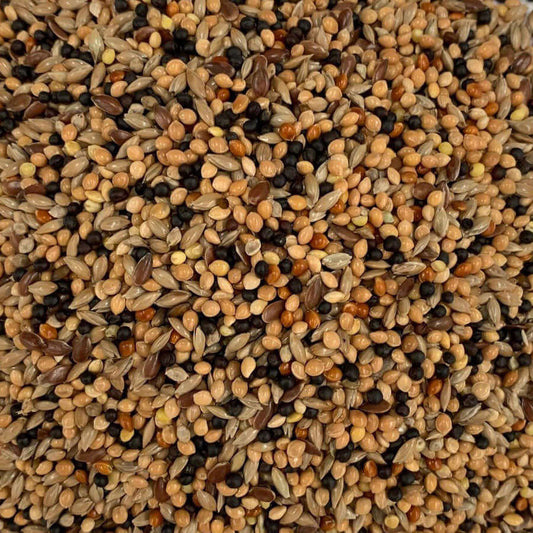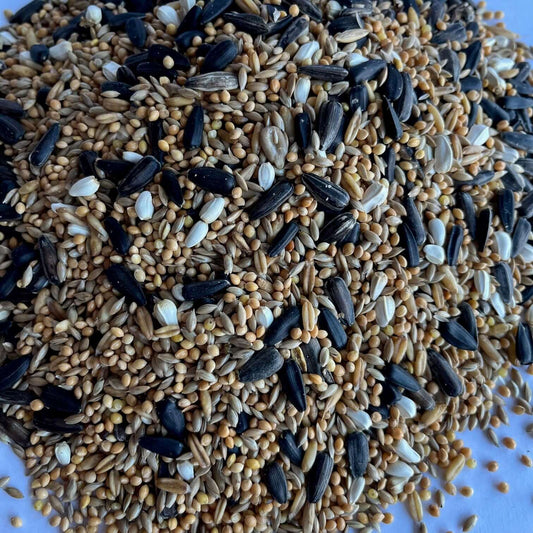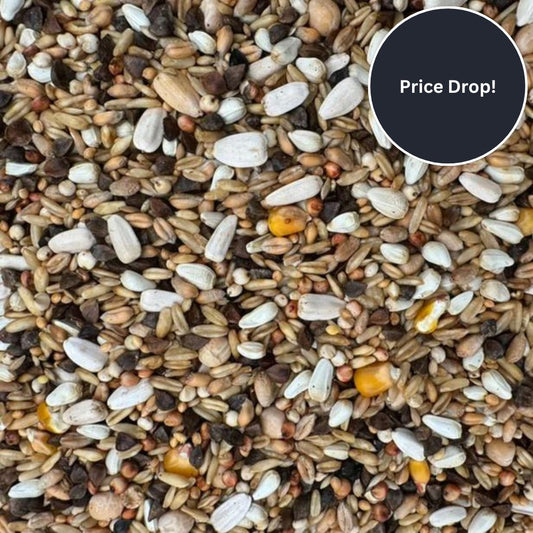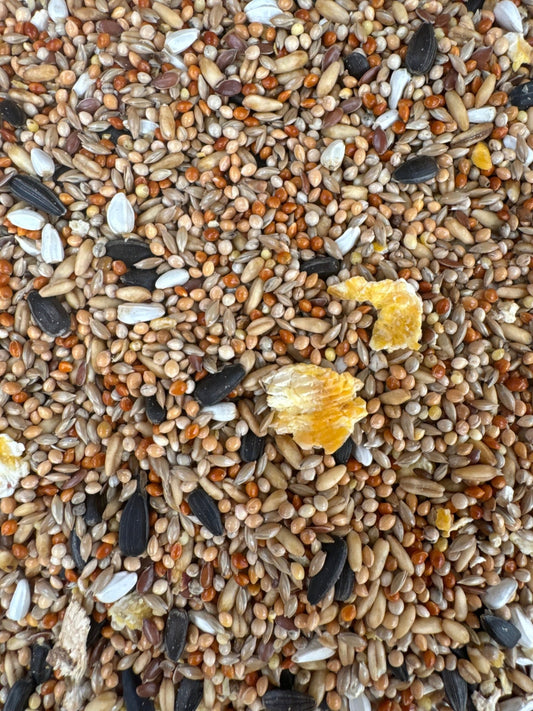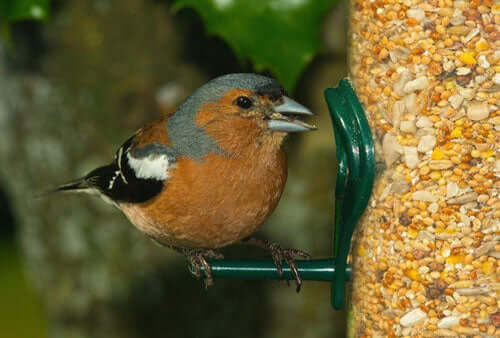
Can Bird Seed Go Bad? Shelf Life and Storage Tips
Share
The biggest clue you might get that your bird food may no longer be fresh is if your garden birds won’t eat it (although - just to confuse matters - there could be other reasons for birds turning their beaks away from bird feeders - such as during the moult).
However, for the purposes of this blog, let's say that the birds are ignoring the food and that seems out of character.
Firstly, give your bird food a good visual inspection - how does it look/smell. Does it look as good as this? That's exactly what we do here at The Bird Food Centre. Some gardeners are keen to store their bird food in greenhouses and sheds - which is generally fine, but not if the area is open to vermin or damp conditions. Moisture will soon encourage mould to grow and that will soon dampen a seeds desirability as far as birds are concerned.
Looking for a no-mess bird seed mix? Try our Huskfree Advance birdseed range of bird food mixes. 100% satisfaction or your money back. Buy bird seed online from Haith's today!
Shop all Wild Bird Food here
Continuing with a visual inspection - look out for live/dead insects, larvae, webbing or other debris. Check seed deep inside large containers as seed at the top may appear fresh and uncontaminated. The best way to store seed is cool and dry, and containers should ideally have lids on them to prevent contamination. Doing this will keep your bird seeds in brilliant condition and save you money in the long run as your seed will stay healthy for longer.
Smell the seed for any hint of mildew and mould. This will be a strong, sharp musty odour and will indicate unwanted growth in your seed. Discoloured grain can also be a sign of fungus in the seed. Again - we check all of these things at Haith's before we accept raw materials into the factory, during storage and manufacturing, and after seeds have been blended into a bird seed mix.
If you suspect seeds have become moist, try sifting the seed for signs of dampness and clumping. Seeds that have clumped together may certainly have been wet and these are now unsuitable for your garden birds' consumption. Sprouting seed is another sign of moisture as is condensation under the lid or inside your storage container. Some seeds are blended purposely for sprouting and feeding at their most nutritious to cage and aviary birds, but these are encouraged to sprout in clean conditions with clean water and good housekeeping.

If your birdseed has been damaged because of any of the above reasons then it should be disposed of in a container or bag out of reach of pests and birds. If you're a dab hand at composting you may be able to use some of the seed there, but that's normally reserved for seed husks. We would then advise you to thoroughly wash, disinfect and completely dry your container before refilling it with fresh clean seed. If your container itself becomes damaged in any way then either replace or repair it before further use.
Correctly stored birdseed should last between six and twelve months (depending on the seed and seed mix) before becoming unsuitable for garden birds. We suggest rotating seed stocks on a regular basis and always use your oldest seed first.
Only purchase your seed in quantities that match the appetites of your birds then this way you can ensure your feeders are always filled with fresh appetising food. With adequate and proper storage you should never have to worry about running out of seed or having your feeders stand empty. 



